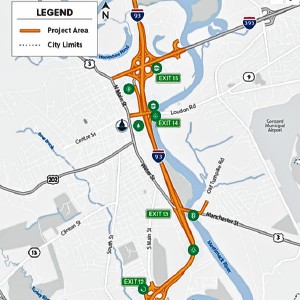Transit Matters put out a report last year, Modernizing the Lowell Line, which included looking at that extension. They put the extension to Manchester, but they didn't really consider Concord, which is a little frustrating. I mean, Concord is a lot smaller, and so that might be a perfectly reasonable cut off point, but I do wish TM would show their work on some these things a bit more.
Despite my nitpicking (and some other criticisms
starting here), the report is well worth a read
NHDOT has done a few more thorough studies. I think Manchester would be the end point of the any initial expansion, but they priced out an extension to Concord, too, at least in the 2014 study if you want to see the details
The proposed service will use approximately 10 miles of MBTA railway from Lowell, MA to Nashua, NH, and 20 miles of MBTA trackage rights on Pan Am Railways (Pan Am) Northern Branch northward into Manchester. The project is currently in the development phase. Key steps to be completed in this...

www.dot.nh.gov
I don't follow NH politics much. Is this really becoming a campaign issue? That's great! Or... could turn out bad. Either way, exciting




